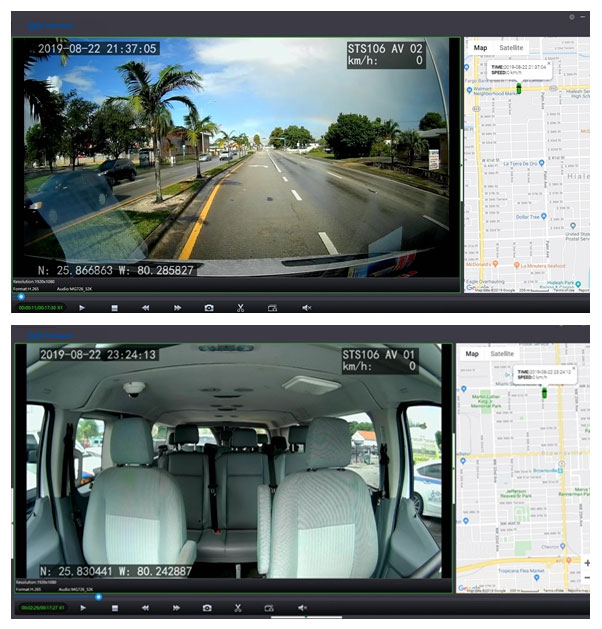AI Fleet Management Guide: Enhancing Efficiency and Safety
AI Fleet Management Guide
Discover how AI in fleet management provides actionable insights and strategies to boost efficiency, reduce costs, and support sustainability goals.
Every fleet operator faces the pressure of ensuring driver safety, managing costs, and achieving sustainability targets. Small inefficiencies can accumulate, eventually impacting profits and threatening fleet performance.
AI offers new solutions for fleet management. By automating routine tasks, predicting maintenance needs, and providing actionable insights, AI helps fleet managers make smarter, faster decisions.
In this article, we'll explore how AI improves fleet efficiency, protects drivers, and aligns operations with sustainability goals.
Improving Operational Efficiency
Coordinating vehicle schedules and task assignments can be time-consuming. AI analyzes real-time data on vehicle location, traffic conditions, and delivery schedules, helping optimize resource allocation for more efficient fleet operations.
In addition to speeding up processes, AI monitors vehicle usage and driver performance to identify underutilized resources and suggest improvements. This allows fleet operations to meet demand with greater precision.

Predictive Maintenance – Reducing Downtime and Costs
Unexpected breakdowns are a major challenge in fleet management. They can disrupt schedules, increase repair costs, and even lead to business interruptions. AI analyzes data from vehicle sensors and maintenance records to predict when a vehicle will need servicing.
When the system detects anomalies, such as abnormal engine vibrations, it sends an alert, allowing maintenance to be scheduled before potential failures occur, reducing repair costs and preventing larger issues.
Route Optimization – Saving Fuel and Time
Efficient routing is crucial to fleet operations. AI improves route planning by analyzing traffic patterns, road conditions, and delivery schedules to ensure vehicles take the optimal path. When congestion is detected, the AI system can quickly adjust routes to avoid delays, saving time and fuel.
Optimized routing ensures on-time deliveries, reduces unnecessary trips, and lowers fuel costs, while also minimizing vehicle wear and tear.
Driver Safety Monitoring
Driver safety is a top priority in fleet management. AI-powered systems go beyond basic alerts, such as speeding or harsh braking, by analyzing deeper patterns that could lead to accidents. By predicting potential risks, fleet managers can intervene before incidents occur, providing targeted training to help drivers improve their skills over time.
In case of an accident, AI distinguishes between minor and major incidents, refining its model with cumulative data, and enabling managers to address urgent issues while maintaining smooth operations.

Better Decision-Making with Unified Data
Data is key to making informed decisions in fleet management. AI collects data from various sources—dashcams, telematics, and more—and turns it into actionable insights for route optimization, safety improvements, and other enhancements.
With a reliable data platform, fleet managers can confidently make decisions, knowing that every data point is accurate and securely guiding their next steps.
Reducing Fleet Management Costs
AI also helps reduce fleet management costs. By analyzing driving patterns, routes, and vehicle performance, AI identifies the most fuel-efficient routes, helping to cut fuel consumption. It also monitors vehicle usage, preventing idle time and excessive wear, extending the fleet's lifespan.
Predicting demand, optimizing resource use, and scheduling maintenance at the right time help reduce repair frequency and keep vehicles on the road longer.
Supporting Sustainability
Operating a more eco-friendly fleet is not only good for the planet but also makes good business sense. AI helps reduce fuel consumption and emissions, making operations more sustainable. By continuously analyzing routes and promoting efficient driving habits, AI helps your fleet contribute to a healthier environment while cutting unnecessary costs.
Adopting AI technologies also ensures that your business stays compliant with increasingly strict regulations and meets consumer expectations for greener practices, boosting your brand reputation.

The Future of AI in Fleet Management
Looking ahead, AI's role in fleet management will continue to expand. What once seemed like cutting-edge technology is rapidly becoming the industry standard, providing fleet managers with tools to keep pace with today’s fast-changing demands and adapt to future challenges. As predictive analytics, real-time data integration, and AI-driven safety protocols advance, future fleets will become even more efficient, safer, and environmentally friendly.
AI will continue to drive innovation in fleet management, enabling fleets to better navigate the challenges of the future. By staying ahead of these developments, fleet managers can ensure their operations remain aligned with technological advancements.
Email:hello@yuweitek.com
More:Truck Management System | Trailer Backup Camera System | Truck Fleet Dash Cam DVR

















































